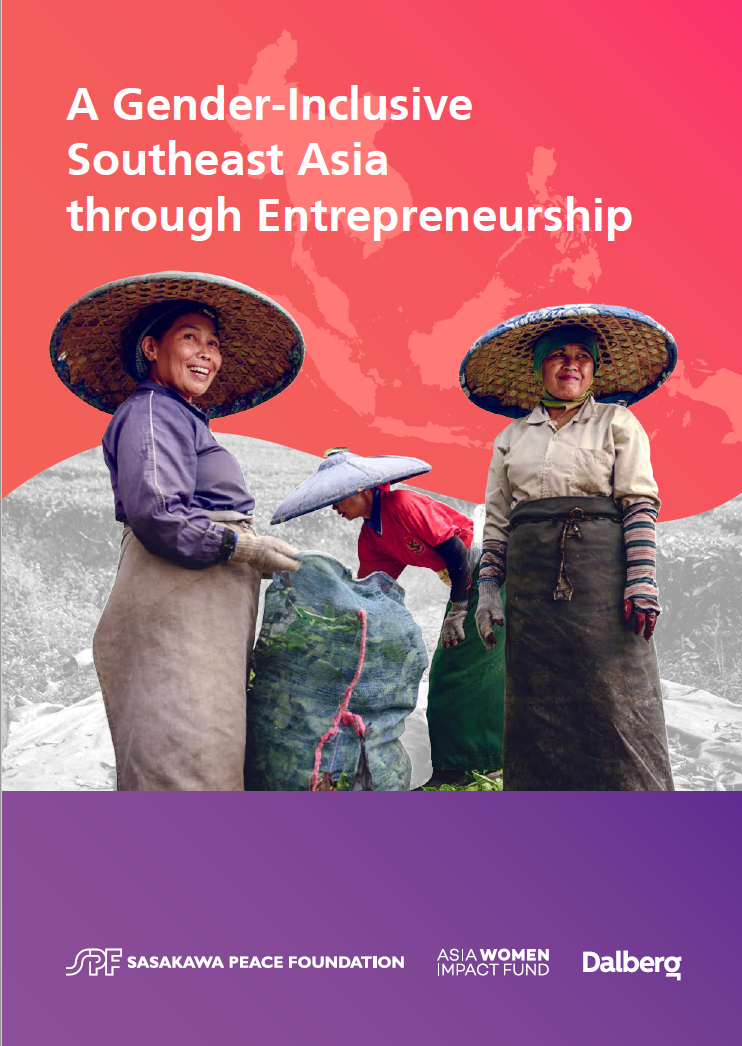A Gender-Inclusive Southeast Asia through Entrepreneurship
June 24, 2019
Entrepreneurs are well placed to lead change in society. Through their use of market-based approaches, entrepreneurs are uniquely positioned to absorb risk and rapidly innovate while ensuring financial sustainability. However, can entrepreneurship be a major mechanism to help enrich women’s lives and promote gender equality in Southeast Asia?
SPF and Dalberg Advisors have collaborated to complete a research report using country level data and expert interviews to understand the critical gender gaps and entrepreneurial solutions to advance the lives of women in Southeast Asia. The study outlines a framework that captures economic empowerment, personal safety and mobility, formal representation, education, health, time and decision-making as seven mutually reinforcing dimensions that are critical to women’s empowerment in Southeast Asia.
The report shows that while many development indicators demonstrate that the lives of women in Asia have drastically improved, endemic problems continue to keep them from fulfilling their potential. For example, many women today remain employed in vulnerable low-paying jobs, are victims of intimate partner violence, and lack access to critical maternal healthcare, especially in rural areas. Traditionally, much of the progress in women’s advancement has been led by governments, civil society and Foundations; however, entrepreneurs are increasingly being viewed as important players in the ecosystem. Through the development of products and services for women, integrating women into value chains and executing gender-transformative policies serving women as employees and leaders, entrepreneurs have the unique ability to lead, innovate and scale solutions to advance gender equality in an efficient manner.
SPF and Dalberg Advisors have collaborated to complete a research report using country level data and expert interviews to understand the critical gender gaps and entrepreneurial solutions to advance the lives of women in Southeast Asia. The study outlines a framework that captures economic empowerment, personal safety and mobility, formal representation, education, health, time and decision-making as seven mutually reinforcing dimensions that are critical to women’s empowerment in Southeast Asia.
The report shows that while many development indicators demonstrate that the lives of women in Asia have drastically improved, endemic problems continue to keep them from fulfilling their potential. For example, many women today remain employed in vulnerable low-paying jobs, are victims of intimate partner violence, and lack access to critical maternal healthcare, especially in rural areas. Traditionally, much of the progress in women’s advancement has been led by governments, civil society and Foundations; however, entrepreneurs are increasingly being viewed as important players in the ecosystem. Through the development of products and services for women, integrating women into value chains and executing gender-transformative policies serving women as employees and leaders, entrepreneurs have the unique ability to lead, innovate and scale solutions to advance gender equality in an efficient manner.
Description
| Category | Special Report |
| Author/Editor | SPF/Dalberg |
| Date of Publication | June 2019 |
| Content | Acknowledgements Preface Introduction The vision for a gender-inclusive Southeast Asia Critical issues holding women back Vulnerability of work and lack of financial resilience for women ・Building resilience into informal worke ・The network effect Violence against women ・Fighting patriarchal practices Poor access to maternal healthcare for the underserved ・Running the last mile Future outlook Staying ahead of the curve The future of women’s work ・Valuing women who work Supporting women’s wellness ・Building community around health Concluding remarks Bibliography |
